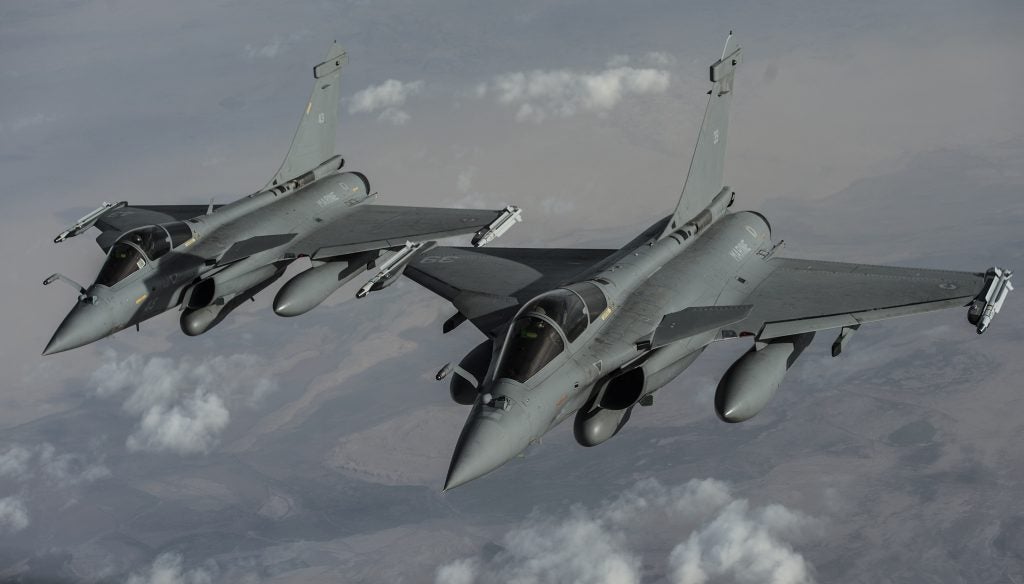Iraqi Defense Minister Expresses Interest In Dassault Rafales
Jumaa Adnan, the Iraqi Minister of Defense, has expressed interest in procuring Dassault Rafale multirole aircraft for the Iraqi Air Force.
In an interview, on 10 November, Jumaa stated that the Ministry of Defense desired to sign a contract to procure Rafales and had discussed the matter with his French counterpart. The plan, however, was in the early stages and still needed to be submitted to the Iraqi Cabinet for approval. The interview came after the Minister returned from an official visit to France, which saw him going for a ride in the back seat of a French Air Force Rafale. In the same interview, Jumaa said that the purpose of the visit was to strengthen the capabilities of the Iraqi military with the latest weapons and equipment.
The desire to procure new aircraft that would presumably bolster or even replace the F-16 Block 52s currently operated by the Iraqi Air Force certainly comes at an interesting time, with the Iraqi Air Force and US Central Command announcing on 17 November, that the F-16s had participated in airstrikes against ISIS safe houses in the al-Zour area of Diyala. The airstrikes confirm their return to service, after reports that they had been grounded for much of 2020 following the withdrawal of US contractors, after the assassination of Qasem Soleimani raised security concerns for American personnel in Iraq.
France’s well-known hands-off approach to its arms exports would certainly be attractive to the Iraqi government, with a reduced likelihood of spares or maintenance staff being withdrawn should Baghdad anger its patrons again as it has the US with its inability to bring the ever-unruly Popular Mobilization Units under its control and not Iran’s. However, the Rafale and other French equipment do cost considerably more than the F-16s, which suggests it could be little more than a pipe dream for a severely cash-strapped government.
With state employees already having their salaries delayed for two months, it certainly would appear that there are more reasonable expenditures for a government that has seen revenues collapse due to low oil prices and the economic strains of the Coronavirus pandemic. Indeed, without cabinet approval, the entire thing might ultimately be little more than plans on paper.

